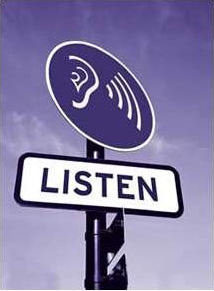 When trying to improve skills in listening (this is also true of the reading) see if you can pinpoint where you are making the mistakes and concentrate in these areas in order to increase your IELTS score.
When trying to improve skills in listening (this is also true of the reading) see if you can pinpoint where you are making the mistakes and concentrate in these areas in order to increase your IELTS score.
Here are a few ideas to help with the questions
Make sure that you really read the rubric – there are two things you MUST know from this
- How many words you need to use ( remember if it says No more than 3 words that doesn’t mean that you have to use three words)
- If you can use things more than once (in headings and summaries for example)
You would be surprised how many students don’t read this carefully and just assume it’s three words and that you can’t use anything more than once.
Make sure you use the time in between the listening parts well. Don’t use this to check the answers from the last section – look at the questions that are coming and identify what you need to listen for. Identify some key words that you will need to listen out for.
Make simple notes if you can, especially numbers, dates, names so that it you miss a question, you will have some information to use when you check later.
When you listen notice markers such as firstly, secondly, next, then, now let’s etc. these will help you see where you are in the stream of speech and these often tally with the questions. It’s as important to know when you’ve missed something as finding the answers. If you are focusing on the answer to just one question you may miss several subsequent ones so make sure you know where you are by using these words and your key words.
Remember you can check later when you have finished and also when you transfer. You will probably not retain the answers from the listening but if you have a few notes and a general sense of what was said you may be able to work things out or pick the right answer.
Don’t leave a blank if possible. You don’t lose marks for a wrong answer to try and work out what it is from the rest of the language around it.
Don’t ignore grammar. Often you will need to adapt words to fit with the grammar and in summaries with a word list the first step you should be taking is to identify which sort of word you are looking for (verb, noun, plural noun, adjective etc.).
You will need to work fast so if you are confused over two possible choices write them both down and then move on (this is true in reading also). You can come back and make your choice later and with more information as you will have learnt more from your listening.
As with everything IELTS related knowing about and reading about are NOT ENOUGH. It is the practice of these techniques that will increase your score.
Finally, the more you listen to things and understand the better your listening skills will become. Don’t stay with IELTS listening. Really work on your skills widely and listen to lots of different kinds of listening genres. Songs, news, instructions (‘How to’ videos on YouTube are great – minimise the screen so you are only listening). Local radio if you can find this is great lots of accents and fast talking (US, UK, Australia, South Africa, India, Singapore, Hong Kong etc. and any other English medium programmes – really good for stretching your listening skills and fun too)
Happy Listening!

